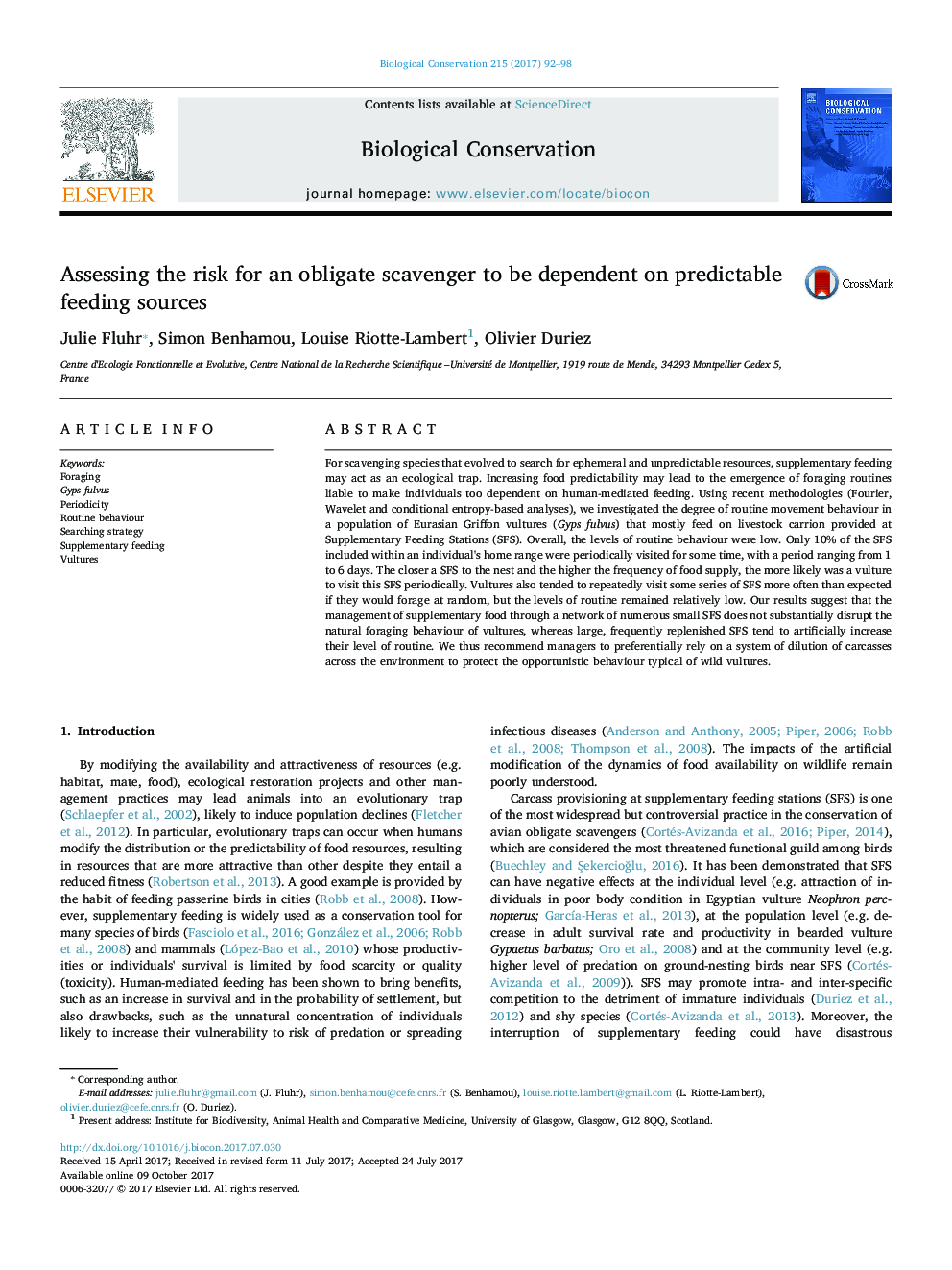| کد مقاله | کد نشریه | سال انتشار | مقاله انگلیسی | نسخه تمام متن |
|---|---|---|---|---|
| 5743025 | 1617890 | 2017 | 7 صفحه PDF | دانلود رایگان |
- Supplementary feeding (SF) results in some regularity in vultures' foraging patterns.
- Overall, Vultures displayed low levels of spatio-temporal routine movement behaviours.
- The probability to visit SF stations routinely increases with the frequency of food supply.
- Large and frequently replenished SF stations may artificially increase the level of routine.
- A high ratio individual/collective SF stations may reduce vultures' unnatural routine foraging behaviour.
For scavenging species that evolved to search for ephemeral and unpredictable resources, supplementary feeding may act as an ecological trap. Increasing food predictability may lead to the emergence of foraging routines liable to make individuals too dependent on human-mediated feeding. Using recent methodologies (Fourier, Wavelet and conditional entropy-based analyses), we investigated the degree of routine movement behaviour in a population of Eurasian Griffon vultures (Gyps fulvus) that mostly feed on livestock carrion provided at Supplementary Feeding Stations (SFS). Overall, the levels of routine behaviour were low. Only 10% of the SFS included within an individual's home range were periodically visited for some time, with a period ranging from 1 to 6Â days. The closer a SFS to the nest and the higher the frequency of food supply, the more likely was a vulture to visit this SFS periodically. Vultures also tended to repeatedly visit some series of SFS more often than expected if they would forage at random, but the levels of routine remained relatively low. Our results suggest that the management of supplementary food through a network of numerous small SFS does not substantially disrupt the natural foraging behaviour of vultures, whereas large, frequently replenished SFS tend to artificially increase their level of routine. We thus recommend managers to preferentially rely on a system of dilution of carcasses across the environment to protect the opportunistic behaviour typical of wild vultures.
Journal: Biological Conservation - Volume 215, November 2017, Pages 92-98
